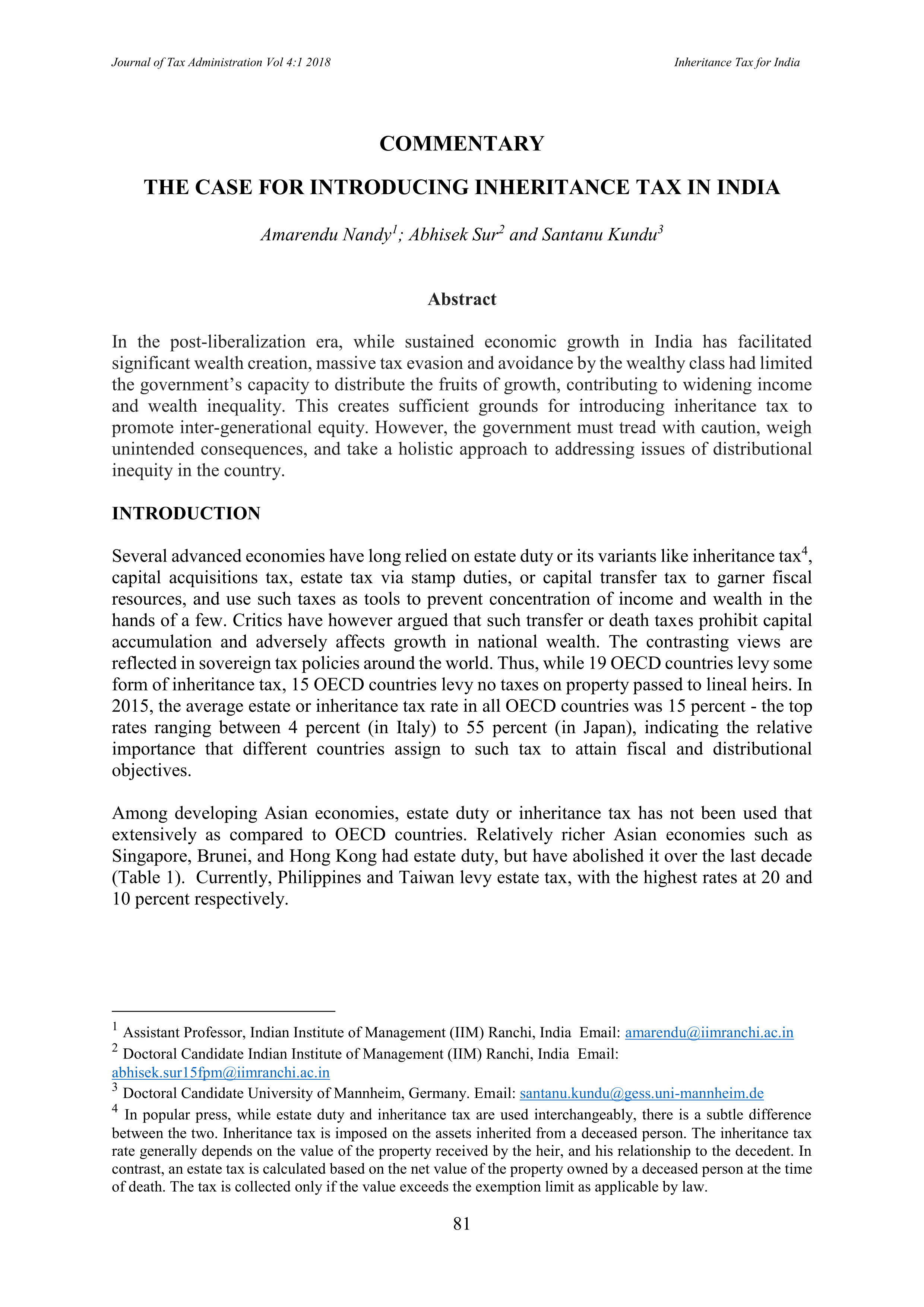The Case for Introducing Inheritance Tax in India
Abstract
In the post-liberalization era, while sustained economic growth in India has facilitated significant wealth creation, massive tax evasion and avoidance by the wealthy class had limited the government’s capacity to distribute the fruits of growth, contributing to widening income and wealth inequality. This creates sufficient grounds for introducing inheritance tax to promote inter-generational equity. However, the government must tread with caution, weigh unintended consequences, and take a holistic approach to addressing issues of distributional inequity in the country.
References
Alvaredo, F., Chancel, L., Piketty, T., Saez, E., & Zucman, G. (2018). World Inequality Report 2018. The World Inequality Lab. doi: http://wir2018. wid. world.
Bagchee, T. (1954). Estate duty and life insurance. Economic and Political Weekly, 6 (4), 127-133.
Chancel, L., & Piketty, T. (2017). Indian income inequality, 1922-2014: From British raj to billionaire raj? WID.World Working paper series no. 2017/11, July. Retrieved from https://wid.world/wp-content/uploads/2017/12/124-Chancel-slides.pdf
Cole, A. (2015). Estate and inheritance taxes around the World. Tax Foundation Fiscal Fact, No. 458, March. Retrieved from https://files.taxfoundation.org/legacy/docs/TaxFoundation_FF458.pdf
Credit Suisse (2016). Global Wealth Report 2016. Credit Suisse Research Institute. Retrieved from http://www.credit-suisse.com/researchinstitute
Knight Frank. (2017). The Wealth Report 2017. Retrieved from http://www.knightfrank.com/wealthreport
Saez, E. & Zucman, G. (2016). Wealth Inequality in the United States since 1913: Evidence from Capitalized Income Tax Data. Quarterly Journal of Economics, 131(2), 519–578. doi: http://10.1093/qje/qjw004
Seidman, L. S. (1983). Taxes in a Life Cycle Growth Model with Bequests and Inheritances, American Economic Review, 73(3), 437-441.
The Organisation for Economic Co-operation and Development. (2017). OECD Economic Surveys India. Retrieved from https://www.oecd.org/eco/surveys/economic-survey-india.htm

Downloads
Published
How to Cite
Issue
Section
License
Copyright (c) 2018 Amarendu Nandy, Abhisek Sur, Santanu Kundu

This work is licensed under a Creative Commons Attribution 4.0 International License.
Our open access status means that authors retain the copyright of their work. However, all papers published in JOTA are done so under a Creative Commons Attribution 4.0 International license (CC BY). This means that others can share and/or adapt your work without your permission as long as they follow certain rules, including attributing your work correctly.
You can learn more about this on our Open Access, Licensing, and Copyright Policies page.



